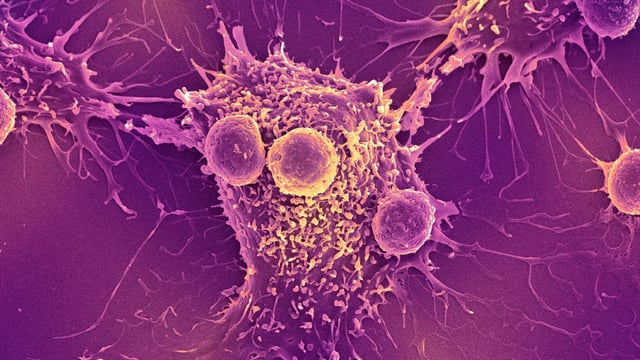Here’s the HTML content:
“`html
Imagine a future where a simple injection, similar to the COVID-19 vaccine, could empower your immune system to hunt down and destroy cancer cells. Sounds like science fiction, right? Well, groundbreaking research suggests this future might be closer than we think. Emerging evidence indicates that the very mRNA technology that brought us life-saving COVID-19 vaccines holds immense promise in the fight against cancer.
The Unexpected Link: COVID-19 Vaccines and Cancer Immunity
The development and rapid deployment of mRNA vaccines during the COVID-19 pandemic was a monumental achievement. These vaccines work by delivering genetic instructions (mRNA) that teach our cells to produce a harmless piece of the virus, triggering an immune response. This response then prepares the body to fight off future infections. But researchers have now discovered a fascinating side effect: this immune training might also have the potential to target cancer.
The key lies in the way mRNA vaccines stimulate the immune system. They activate various immune cells, including T cells, which are crucial for recognizing and destroying infected or cancerous cells. In essence, the vaccine acts as a powerful immune system “trainer,” sharpening its ability to identify and eliminate threats, regardless of their origin.
How mRNA Vaccines Could Revolutionize Cancer Treatment
The potential applications of mRNA technology in cancer treatment are vast and exciting. One promising approach involves creating personalized cancer vaccines. These vaccines would be tailored to each patient’s unique tumor, based on the specific mutations present in their cancer cells. By delivering mRNA encoding these tumor-specific antigens, the vaccine could teach the immune system to recognize and attack the patient’s particular cancer.
Another approach explores using mRNA vaccines to boost the effectiveness of existing cancer therapies, such as immunotherapy. Immunotherapy drugs work by unleashing the immune system to attack cancer, but they don’t always work for everyone. Combining immunotherapy with an mRNA vaccine could potentially enhance the immune response and improve treatment outcomes. This dual approach aims to provide a more comprehensive and effective attack on the cancer cells.
Examples of Early Success
While research is still in its early stages, there have been some encouraging results. Studies have shown that mRNA vaccines can shrink tumors and improve survival rates in animal models of cancer. There are also ongoing clinical trials testing the safety and efficacy of mRNA cancer vaccines in humans, with some early data suggesting promising results. These initial successes are fueling further research and investment in this field.
The Challenges and Future Directions
Despite the excitement, there are still significant challenges to overcome. One major hurdle is ensuring that the immune response triggered by the mRNA vaccine is strong enough to effectively eliminate the cancer cells. Another challenge is preventing the immune system from attacking healthy tissues, which can lead to autoimmune side effects. More research is needed to optimize the design of mRNA cancer vaccines and develop strategies to minimize potential side effects.
Looking ahead, the future of mRNA cancer vaccines is bright. Researchers are exploring new ways to improve the delivery of mRNA to immune cells, enhance the immune response, and personalize vaccines to individual patients. With continued research and development, mRNA technology has the potential to transform cancer treatment and offer new hope to patients worldwide.
A Glimmer of Hope in the Fight Against Cancer
The discovery that COVID-19 mRNA vaccines can trigger the immune system to recognize and kill cancer cells is a remarkable development. While more research is needed, this finding offers a glimmer of hope in the ongoing fight against cancer. The potential to harness the power of the immune system to target and destroy cancer cells is a game-changer, and mRNA technology may just be the key to unlocking this potential. The journey is just beginning, but the possibilities are truly inspiring.
